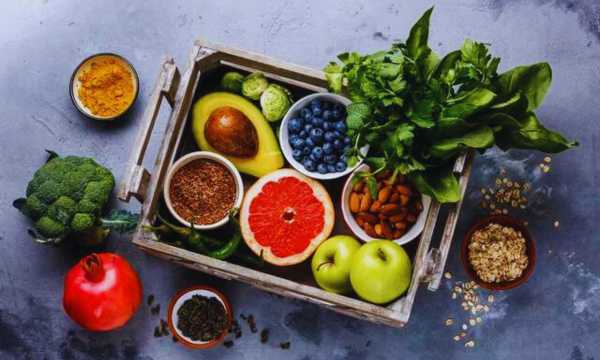Maintaining a proper eating plan is essential for those living with diabetes.
Ad
Managing diabetes can often seem challenging, but understanding how a specific diet plan can help is the first step to effectively managing the condition.
In this article, you’ll discover how a diabetes diet plan can be the key to keeping your blood sugar levels under the condition.
We will explore the basics of a diabetes diet plan, which foods are best to include in your diet, and what you should avoid.
Additionally, we’ll present a weekly meal plan to help you get started, along with tips on how to customize the diet to fit your needs and lifestyle.
All of this is presented in simple language, so anyone can understand and apply it.
Now, let’s dive into the essentials you need to know to follow an effective diabetes diet plan, ensuring you are always on the path to a healthier and more balanced life.
Understanding the Basics: What is a diabetes diet plan?
A diabetes diet plan is a meal plan specifically designed to help control blood sugar levels. It’s not just a list of foods; it’s a strategy that involves careful food choices, meal scheduling, and portion control.
The main goal is to keep glucose levels within a healthy range, avoiding both spikes and sudden drops.
A specific diet is essential for people with diabetes, as their bodies process sugar differently.
This means that what you eat, and when you eat, has a direct impact on your blood sugar levels. A well-structured plan helps stabilize these levels, reducing the risk of long-term complications.
Additionally, a well-planned diabetes diet plan can improve your energy, help with weight control, and promote overall better health.
This doesn’t mean you have to follow a strict and restrictive diet, but rather make smart food choices that meet your specific needs.
Top 10 Foods to Include in Your Diabetes Diet
Including the right foods in your diabetes diet plan can make a huge difference. These foods help control blood sugar levels, promote satiety, and provide essential nutrients for your health. Here are the top ten foods that should be part of your diet:
- Leafy Green Vegetables: Spinach, kale, and Swiss chard are high in fiber and low in carbohydrates. They help control glucose levels and are extremely nutritious.
- Fish: Salmon, sardines, and mackerel are rich in omega-3, which helps reduce inflammation and improve heart health—especially important for diabetics who are at higher risk complications.
- Avocado: A source of healthy fats, avocado helps improve insulin sensitivity and keeps blood sugar levels stable.
- Chia Seeds: Rich in fiber and omega-3 fatty acids, chia seeds help control blood sugar levels and reduce hunger.
- Eggs: A versatile and nutritious food, eggs are high in protein and help keep you full longer without affecting glucose levels.
- Nuts and Almonds: These healthy snacks are rich in healthy fats and fiber, helping control blood sugar and reducing hunger between meals.
- Unsweetened Greek Yogurt: Rich in probiotics, protein, and low in carbohydrates, Greek yogurt aids digestion and blood sugar control.
- Carrots: High in fiber and low in glycemic index, carrots don’t cause blood sugar spikes.
- Berries: Strawberries, raspberries, and blueberries are low in sugar and rich in antioxidants, helping fight inflammation.
- Beans: High in protein and fiber, beans help stabilize blood sugar and provide a long-lasting energy source.

Foods to include in the Diet (Google Source)
Foods to Avoid: What Not to Eat When You Have Diabetes
To follow an effective diabetes diet plan, it’s also essential to know which foods to avoid. Some foods can cause spikes in blood sugar levels and should be consumed with caution or eliminated from your diet. Here are the main foods you should avoid:
- Refined Sugars: Sweets, cakes, sodas, and other sugary foods are a significant threat to glucose control. They can cause rapid blood sugar spikes and should be avoided.
- Refined Carbohydrates: White bread, white rice, and pasta made with refined flour are quickly converted into glucose in the blood, causing unwanted spikes.
- Sugary Drinks: Fruit juices, sweetened teas, and sodas are concentrated sources of sugar and can be harmful to those trying to control diabetes.
- Fried Foods: Fried foods are not only high in calories and bad fats but can also increase insulin resistance, worsening diabetes control.
- Processed Foods: Items like snacks, fast food, and frozen meals often contain sugar, trans fats, and additives that harm blood sugar control.
Avoiding these foods helps keep your glucose levels stable and reduces the risk of complications associated with diabetes. Remember that while it’s important to avoid these foods, you don’t need to completely eliminate carbohydrates or fats. The key is making healthy and balanced choices.
Sample Meal Plans: A Week of Healthy Eating for Diabetics
Creating a healthy meal plan can seem challenging, but following a diabetes diet plan doesn’t have to be complicated. Here’s an example of a weekly meal plan that helps keep blood sugar levels stable and provides variety and flavor:
Monday:
- Breakfast: Unsweetened Greek yogurt with chia seeds and berries.
- Lunch: Green leafy salad with avocado, nuts, and grilled chicken breast.
- Dinner: Grilled salmon with broccoli and quinoa.
Tuesday:
- Breakfast: Scrambled eggs with spinach and tomatoes.
- Lunch: Lentil soup with carrots and whole-grain bread.
- Dinner: Baked chicken breast with sweet potatoes and sautéed kale.
Wednesday:
- Breakfast: Green smoothie with kale, avocado, and chia seeds.
- Lunch: Lettuce wrap with tuna, cucumber, and avocado.
- Dinner: Grilled tofu with brown rice and sautéed vegetables.
Thursday:
- Breakfast: Oatmeal with nuts and strawberries.
- Lunch: Chickpea salad with raw vegetables and lemon dressing.
- Dinner: Baked tilapia with potatoes and sautéed spinach.
Friday:
- Breakfast: Egg white omelet with mushrooms and bell peppers.
- Lunch: Turkey sandwich on whole-grain bread with lettuce and tomato.
- Dinner: Lean grilled steak with quinoa salad and vegetables.
Saturday:
- Breakfast: Almond flour pancakes with berries.
- Lunch: Black bean soup with avocado and cilantro.
- Dinner: Baked cod with sweet potatoes and green salad.
Sunday:
- Breakfast: Greek yogurt with almonds and raspberries.
- Lunch: Tuna salad with quinoa and vegetables.
- Dinner: Roasted chicken with cauliflower and carrots.
This meal plan provides a healthy balance of proteins, fiber, and good fats, keeping glucose levels stable while offering variety to avoid monotony.
How to Customize Your Diabetes Diet Plan to Fit Your Lifestyle
Customizing your diabetes diet plan is crucial to ensuring it is sustainable and effective in the long term. Each person is different, and what works for one may not work for another. Therefore, adjusting the plan to your preferences and daily routine is essential.
First, consider your food preferences. If you don’t like certain foods, substitute them with equivalent options that fit your plan. For example, if you’re not a fan of fish, try other sources of omega-3, like nuts or chia seeds.
Additionally, adjust your plan according to your routine. If you have a busy lifestyle, prepare meals in advance or choose quick and healthy options. Carrying healthy snacks with you can help avoid hunger spikes and keep your blood sugar levels under control.
Finally, always consult a nutritionist or doctor to adjust your diabetes diet plan according to your specific needs. They can offer personalized guidance to ensure you’re on the right track to achieving your health goals.
Conclusion
Following a diabetes diet plan is not just a necessity but an opportunity to live a healthier and more balanced life.
By understanding the basics of this plan, choosing the right foods, avoiding harmful ones, and adapting the plan to your lifestyle, you’ll be on the right path to controlling your blood sugar levels and improving your quality of life.
Remember, consistency is key. Over time, these choices will become a natural part of your routine, helping you live better with diabetes.



